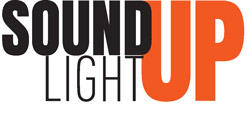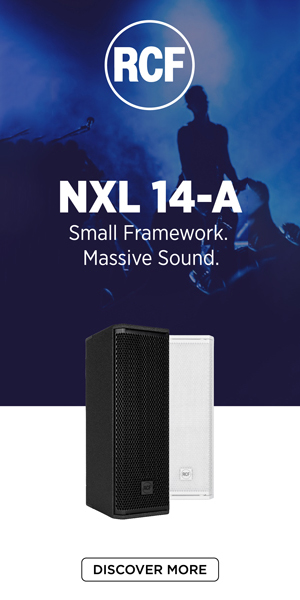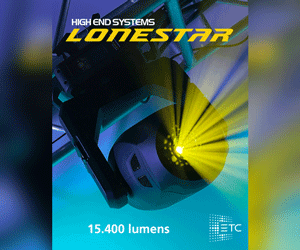In the magnificent setting of the Arenes de Nîmes, in the south of France, acclaimed lighting designer Pierre Wendels shed light on the history of the city, in a visual spectacular specifically designed for the Roman amphitheater.
Les Nuits de Nemaus featured more than 200 professional actors, dancers and stuntmen and a plethora of effects; with lighting controlled by two ETC Eos consoles, with Philippe “Pilou” Roy at the helm.
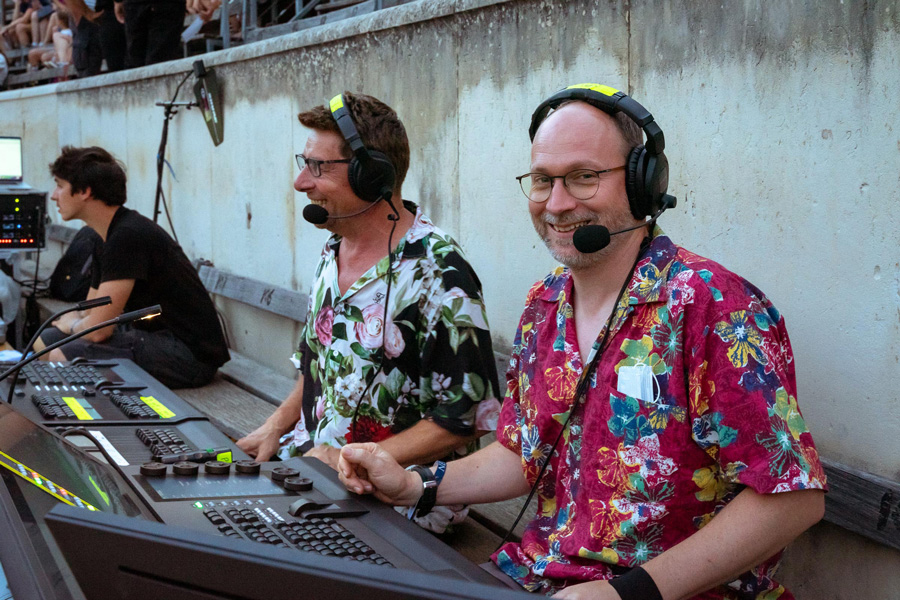
Accustomed to major projects, Wendels created a poetic atmosphere by combining lighting and video content for the remarkable show. “If the team around me is confident, everyone is willing to take risks and that’s good for fostering creativity,” he says.
“I try to connect with the audience through visual perception. My first consideration is the human experience; the method is only a tool.”
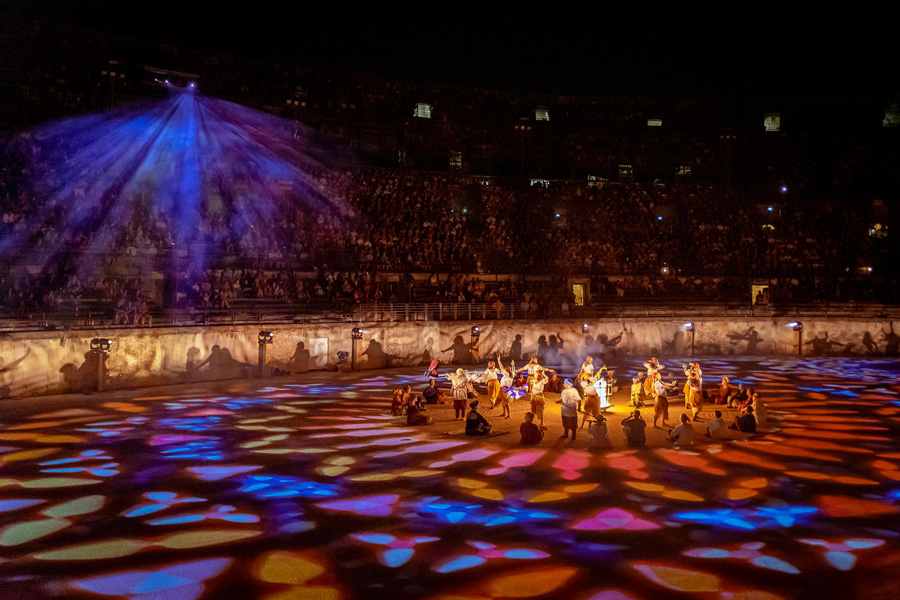
For this project, Wendels relied on Virginie Martin to create the video content, and Roy for the lighting aspects. “I write very detailed notes with drawings and photo montages in which I tell the story of the light,” he says. “Lighting and video are inseparable from the outset. They form a whole – one does not work without the other. ”

An Eos Ti and an Ion Xe console, both provided by Groupe BLive, demonstrated their versatility on this significant show, thanks in part to Augment3d, the integrated 3D programming environment introduced in the Eos v3.0 software update.
“I’ve been presenting Augment3d almost every day since its launch at the end of 2019,” says Roy, who also works as a field project coordinator for ETC France. “It’s great to finally be able to use it on a project of this size and scope.”
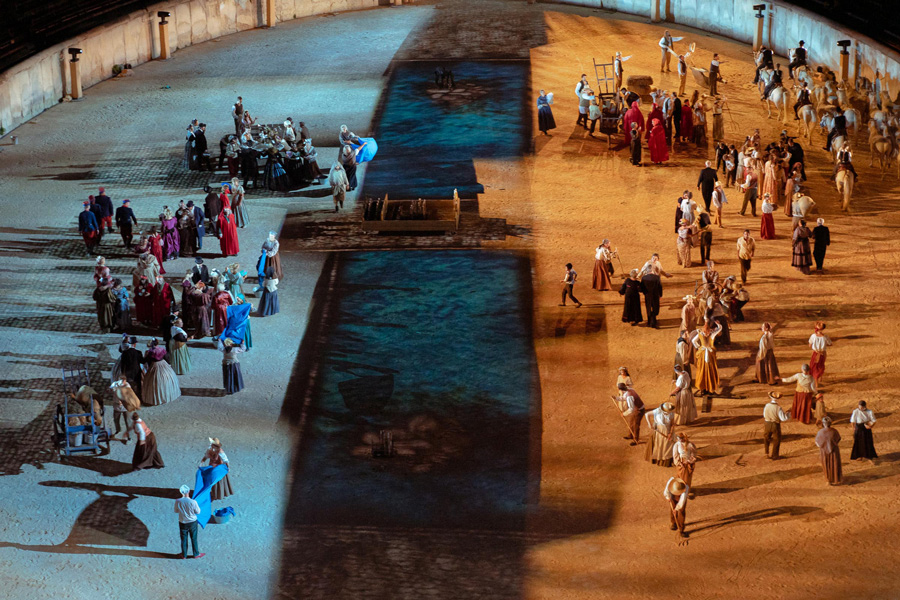
The Augment3d programming environment enabled Roy to design and control a three-dimensional space in virtual form, including automatic positioning of the sixty automated lighting fixtures involved.
Once configured, the lighting rig was able to respond to a simple tap of the touchscreen offering unparalleled ease of use and a huge time saving for Roy and his team.
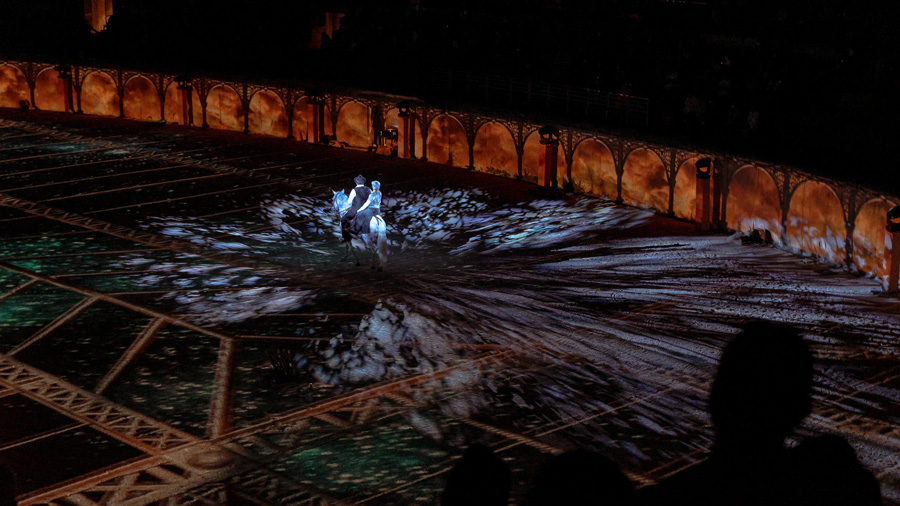
Additionally, Roy took the opportunity to experiment with some upcoming features currently in beta testing, including the ability to customize the role of the encoders.
He employed this new function for quick access to the parameters of the real-time tracking system for the follow spot used on the show. He also experimented with the extended capabilities of the Custom Direct Selects function available in the new version.
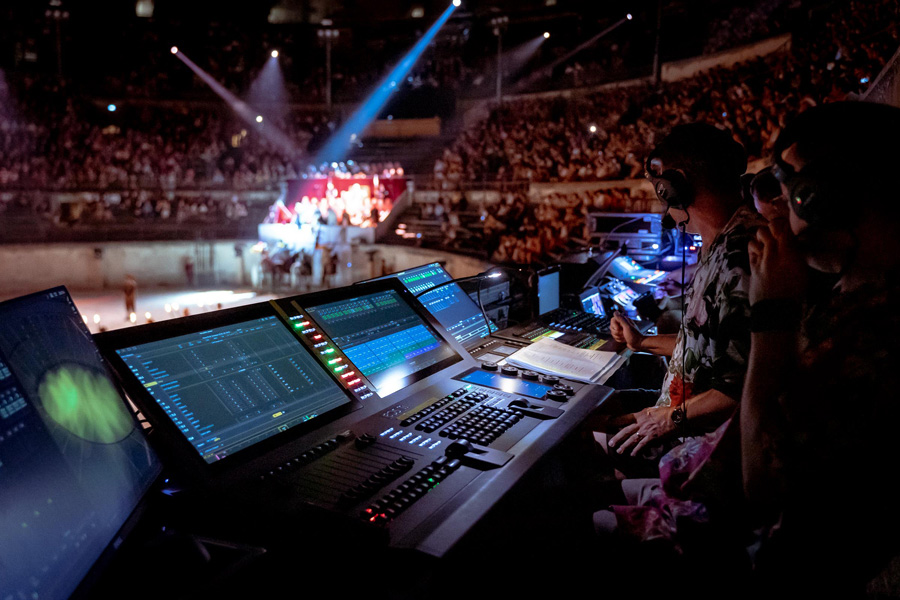
During the 90-minute show, Roy controlled all the moving lights on the Eos Ti, often making changes on the fly based on the ever-changing movements of the performers.
Alongside him, Wendels supervised the smooth running of the show, directed the various technicians involved in the production, and managed the fog in real-time.
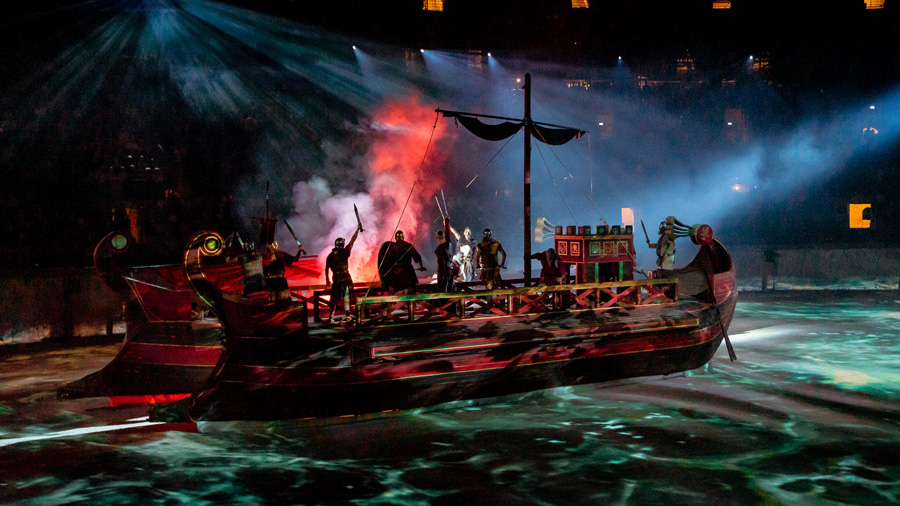
Multiple traditional lighting fixtures were also controlled from the interface of the Ion Xe 20, including a pivotable structure of 30 PAR64 fixtures, nine BT500 projectors, and a 2.5 kW HMI Fresnel.
The two Eos consoles were synchronized, with the Eos Ti performing all the calculations while the Ion Xe 20 served as a backup that could take over in the event of a problem.
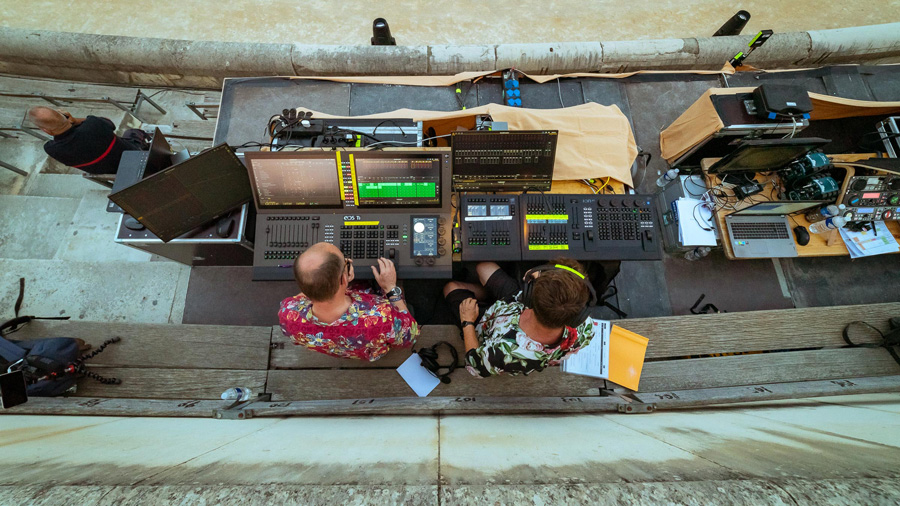
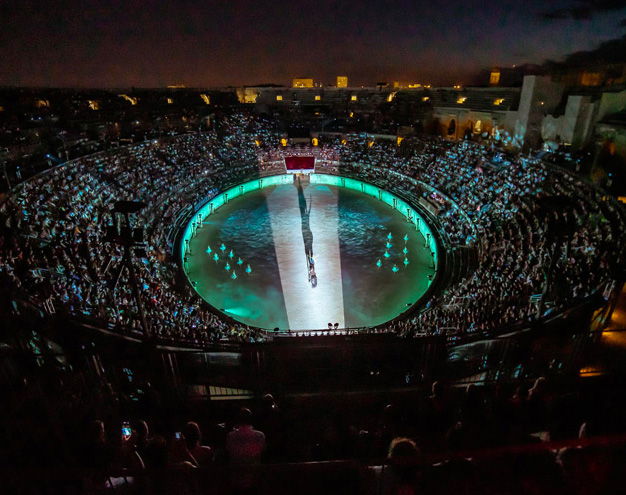
In conclusion, Roy comments: “Along with the welcome addition of Augment3d, this landmark show really highlighted that Eos has so many more benefits than just its award-winning color control capabilities, especially when it comes to handling large-scale performances.”
For more info about ETC, you can visit the ETC website

